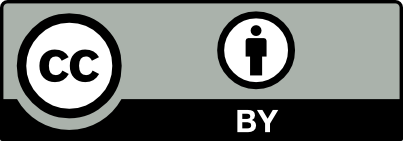| Name | Storage | Metadata | Upload | Action |
|---|
Alternate identifier:
-
Creator/Author:
El Khaled EL Faraj, Razan
https://orcid.org/0000-0001-8713-4084
[Institut für Biologische und Chemische Systeme (IBCS), Karlsruher Institut für Technologie (KIT)]
Popova, Anna [Institut für Biologische und Chemische Systeme (IBCS), Karlsruher Institut für Technologie (KIT)]
Contributors:
(Data Curator)
(Data Collector)
(Other)
(Data Curator)
(Other)
(Other)
(Other)
(Data Curator)
(Project Leader)
Chakraborty, Shraddha [Chakraborty, Shraddha]
(Data Collector)
Zhou, Meijun [Institut für Biologische und Chemische Systeme (IBCS), Karlsruher Institut für Technologie (KIT)]
(Other)
Sobol, Morgan [Institut für Biologische Grenzflächen (IBG), Karlsruher Institut für Technologie (KIT)]
(Data Curator)
Thiele, David [Institut für Biologische Grenzflächen (IBG), Karlsruher Institut für Technologie (KIT)]
(Other)
ShatfordAdams, Lilly [ShatfordAdams, Lilly]
(Other)
Correa Cassal, Maximiano [Institut für Biologische Grenzflächen (IBG), Karlsruher Institut für Technologie (KIT)]
(Other)
Kaster, A.-K. [Institut für Angewandte Biowissenschaften (IAB), Karlsruher Institut für Technologie (KIT)]
(Data Curator)
Dietrich, Sascha [Dietrich, Sascha]
(Project Leader)
Levkin, P.
https://orcid.org/0000-0002-5975-948X
[Institut für Organische Chemie (IOC), Karlsruher Institut für Technologie (KIT)]
Title:
Drug-Induced Differential Gene Expression Analysis on Nanoliter Droplet Microarrays: Enabling Tool for Functional Precision Oncology
Additional titles:
-
Description:
(Abstract)
Drug-induced differential gene expression analysis (DGEA) is an essential tool for uncovering the molecular basis of phenotypic changes in cells upon drug treatment, and ultimately for understanding the mechanisms of individual tumor responses to anticancer drugs. Performing high-throughput DGEA aft...
(Technical Remarks)
The provided data are technical repeats from the research experimental details. including qPCR data and image analysis for cellular viability.
Keywords:
droplet microarray
differential gene expression analysis
qPCR
drug screening
functional precision oncology
chronic lymphocytic leukemia
differential gene expression analysis
qPCR
drug screening
functional precision oncology
chronic lymphocytic leukemia
Language:
-
Publishers:
Production year:
Subject areas:
Biology
Resource type:
Dataset
Data source:
-
Software used:
-
Data processing:
-
Publication year:
Rights holders:
El Khaled EL Faraj, Razan
https://orcid.org/0000-0001-8713-4084
Popova, Anna
Funding:
-
Status:
Published
Uploaded by:
kitopen
Created on:
Archiving date:
2024-10-10
Archive size:
33.6 GB
Archive creator:
kitopen
Archive checksum:
399e7d17e2b6e9a5c68a9db0db9f2008
(MD5)
